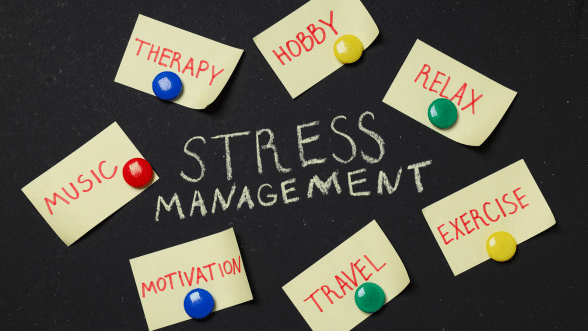What is Stress Management?
- Stress Management refers to a variety of techniques and strategies aimed at controlling a person’s level of stress, especially chronic stress, to improve daily functioning and overall well-being.
- These strategies can include relaxation techniques, time management, physical exercise, and mindfulness practices.
- Effective stress management is essential for both students, who face academic pressures, and professionals, who must handle workplace demands and personal responsibilities.
What are some effective Stress Management techniques?
- Mindfulness and Meditation: Practices like mindfulness meditation can help calm the mind, reduce anxiety, and improve focus, making it easier to handle stress.
- Exercise: Regular physical activity is a powerful stress reliever, as it releases endorphins and improves mood and energy levels.
- Time Management: Organizing tasks, setting priorities, and breaking down projects into manageable steps can reduce feelings of overwhelm and improve productivity.
- Relaxation Techniques: Techniques such as deep breathing, progressive muscle relaxation, or yoga can help reduce physical tension and promote relaxation.
How can coaching help?
- Coaching can provide strategies aligned with the individual’s lifestyle, goals, and stressors.
- For students, coaching might focus on balancing academic responsibilities with personal life, developing effective study habits, and learning relaxation techniques to manage test anxiety.
- For professionals, coaching can assist in managing workplace, improving skills, and developing healthy work-life balance practices.
- Through coaching, individuals can learn to identify their stress triggers, apply effective techniques, and enhance their overall well-being.




